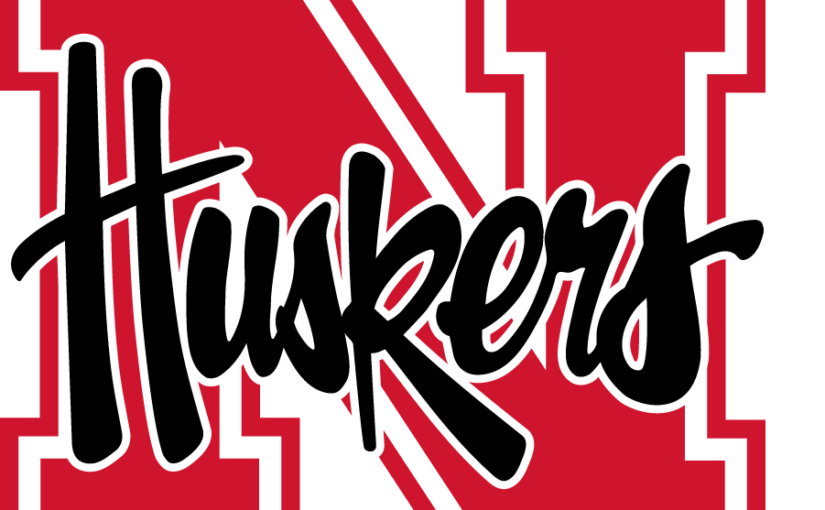NBA A Refuge For Disgraced College Coaches
Some ex-college coaches ended up in the NBA out of necessity, leaving the college game under less than ideal situations at best or a blizzard of NCAA violations at worst.
Toronto Raptors coach Dwane Casey, Houston Rockets assistant coach Kelvin Sampson and Los Angeles Lakers assistant coach Quin Snyder all found refuge in the NBA after being ousted from college positions.
“The goal is to win at this level, said Milwaukee Bucks general manager John Hammond, who signed off on coach Scott Skiles’ decision to hire Sampson, a former Indiana University coach, as an assistant in 2008. What about the so-called baggage that comes with a guy like that? One thing about our society, whether it be in politics, entertainment or sports: People forgive and forget.”
That combination — the price of winning and a second chance — has allowed Casey, Sampson and Snyder to do what they love: coach basketball. And earn a nice salary.
Casey, 54, a longtime NBA assistant, is in his second head coaching job. Sampson, 56, and Snyder, 45, both explored head coaching opportunities last summer. Sampson interviewed with the Detroit Pistons and Rockets, and Snyder talked with the Timberwolves. Neither made the final cut.
An assistant for Kentucky during the 1980s, Casey was a central figure in the Wildcats’ 1988 basketball scandal involving a cash payment to a recruit’s father. Casey’s name was listed as the sender on a package filled with $1, 0, although Casey maintains he did nothing wrong and settled a $6.9 million lawsuit against Emery Air Freight. However, the mounting scandal forced Wildcats coach Eddie Sutton and two assistants, including Casey, to resign in March 1989.
Missouri asked Snyder to resign in midseason in 2006 after a poor win-loss record and amid growing concerns over his control of the program. In a 2004 report that resulted in minor sanctions, the NCAA had cited Snyder for 17 violations.
Sampson resigned in 2008 amid NCAA recruiting violations involving impermissible phone calls to recruits. Sampson, who coached Oklahoma from 1994 to 2006, was hit with a five-year show-cause order, meaning he essentially is banned from coaching college basketball until 2013.
San Antonio Spurs GM R.C. Buford hired Sampson in an advisory role with the club. Two months later, Skiles hired him as a Bucks assistant. Skiles had a home in Bloomington when Sampson coached the Hoosiers, and they developed a relationship.
Sampson had his eye on the NBA in 2002 when he served on George Karl’s Team USA staff with Gregg Popovich in the world championships.
“I started becoming infatuated with the NBA then, Sampson said. It’s just interesting and intriguing to spend your day figuring out how you can make your team better, design things offensively to exploit your team’s strengths and exploit the other team’s weaknesses.”
Sampson said he had NBA feelers while at Oklahoma but decided to stay put. The program made nine consecutive NCAA Tournament appearances, including a Final Four trip in 2002.
Sampson thinks he benefited from learning the nuances of the NBA as an assistant without the added pressures facing a head coach.
“It would have been an injustice for me to coach a team right away, Sampson said. I was qualified to coach. I wasn’t qualified to succeed. Now I am. . . . I was shocked at how big a difference it was. I really was.”
Snyder, Casey and Sampson agreed on one aspect of switching to the NBA: They can coach unimpeded by the ancillary tasks of recruiting and ensuring players are making grades and staying out of trouble.
Casey said it’s pure basketball.
“I’d much rather be a basketball coach and not have to do that (other stuff), he said.
Casey wants to finish in the NBA. Sampson said he will never say never to the college game but added, I had a great run.”
Snyder sounded most wistful about the college game. He still follows Missouri.
NBA A Refuge For Disgraced College Coaches
USA Today, Jeremy Corbett
http://www.indystar.com/article/20120217/SPORTS/202170347/NBA-provides-refuge-disgraced-college-coaches?odyssey=mod|newswell|text|Sports|s
Some college basketball coaches — Rick Pitino, John Calipari, Lon Kruger — went to the NBA as head coaches for the challenge, ego gratification, money or all of the above.
Some ex-college coaches ended up in the NBA out of necessity, leaving the college game under less than ideal situations at best or a blizzard of NCAA violations at worst.
Toronto Raptors coach Dwane Casey, Houston Rockets assistant coach Kelvin Sampson and Los Angeles Lakers assistant coach Quin Snyder all found refuge in the NBA after being ousted from college positions.
“The goal is to win at this level, said Milwaukee Bucks general manager John Hammond, who signed off on coach Scott Skiles’ decision to hire Sampson, a former Indiana University coach, as an assistant in 2008. What about the so-called baggage that comes with a guy like that? One thing about our society, whether it be in politics, entertainment or sports: People forgive and forget.”
That combination — the price of winning and a second chance — has allowed Casey, Sampson and Snyder to do what they love: coach basketball. And earn a nice salary.
Casey, 54, a longtime NBA assistant, is in his second head coaching job. Sampson, 56, and Snyder, 45, both explored head coaching opportunities last summer. Sampson interviewed with the Detroit Pistons and Rockets, and Snyder talked with the Timberwolves. Neither made the final cut.
An assistant for Kentucky during the 1980s, Casey was a central figure in the Wildcats’ 1988 basketball scandal involving a cash payment to a recruit’s father. Casey’s name was listed as the sender on a package filled with $1, 0, although Casey maintains he did nothing wrong and settled a $6.9 million lawsuit against Emery Air Freight. However, the mounting scandal forced Wildcats coach Eddie Sutton and two assistants, including Casey, to resign in March 1989.
Missouri asked Snyder to resign in midseason in 2006 after a poor win-loss record and amid growing concerns over his control of the program. In a 2004 report that resulted in minor sanctions, the NCAA had cited Snyder for 17 violations.
Sampson resigned in 2008 amid NCAA recruiting violations involving impermissible phone calls to recruits. Sampson, who coached Oklahoma from 1994 to 2006, was hit with a five-year show-cause order, meaning he essentially is banned from coaching college basketball until 2013.
San Antonio Spurs GM R.C. Buford hired Sampson in an advisory role with the club. Two months later, Skiles hired him as a Bucks assistant. Skiles had a home in Bloomington when Sampson coached the Hoosiers, and they developed a relationship.
Sampson had his eye on the NBA in 2002 when he served on George Karl’s Team USA staff with Gregg Popovich in the world championships.
“I started becoming infatuated with the NBA then, Sampson said. It’s just interesting and intriguing to spend your day figuring out how you can make your team better, design things offensively to exploit your team’s strengths and exploit the other team’s weaknesses.”
Sampson said he had NBA feelers while at Oklahoma but decided to stay put. The program made nine consecutive NCAA Tournament appearances, including a Final Four trip in 2002.
Sampson thinks he benefited from learning the nuances of the NBA as an assistant without the added pressures facing a head coach.
“It would have been an injustice for me to coach a team right away, Sampson said. I was qualified to coach. I wasn’t qualified to succeed. Now I am. . . . I was shocked at how big a difference it was. I really was.”
Snyder, Casey and Sampson agreed on one aspect of switching to the NBA: They can coach unimpeded by the ancillary tasks of recruiting and ensuring players are making grades and staying out of trouble.
Casey said it’s pure basketball.
“I’d much rather be a basketball coach and not have to do that (other stuff), he said.
Casey wants to finish in the NBA. Sampson said he will never say never to the college game but added, I had a great run.”
Snyder sounded most wistful about the college game. He still follows Missouri.












